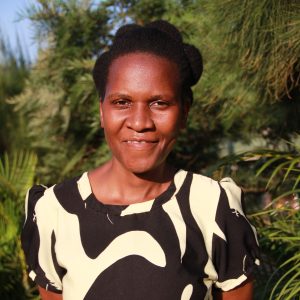YOUNG MOTHERS
YOUNG MOTHERS PROJECT
Empowering Young Mothers in Northern Uganda:
A Path to Resilience and Independence
In Northern Uganda’s Agago and Amuru districts, ADRA Finland and ADRA Uganda are implementing a transformative project that addresses one of the region’s most pressing challenges: supporting vulnerable teenage mothers and school dropouts, including those with disabilities.
The Challenge
The baseline survey conducted in early 2025 revealed stark realities facing young mothers in these communities. Of the 196 teen mothers surveyed, 86% had dropped out of school, primarily due to pregnancy. The data painted a picture of compounding vulnerabilities: financial constraints affected 72% of respondents, while 34% cited early pregnancy as their reason for leaving education. Many faced rejection from families and communities, limited access to essential services, and exposure to gender-based violence.
The situation for persons with disabilities proved equally concerning, with 86% out of school due to stigma, financial barriers, and inadequate support structures. Only 2% of teen mothers had accessed vocational training, highlighting a critical gap in skills development opportunities.
A Multi-Faceted Intervention
The project addresses these challenges through an integrated approach combining:
Education and Skills Development: With 92% of young mothers expressing a strong desire to return to school or access vocational training, the project focuses on creating pathways back to education while expanding vocational training opportunities with financial aid and mobile units.
Sexual and Reproductive Health Rights: While 62% of respondents had received some SRH education, significant gaps remained, particularly in areas like safe motherhood, mental health, and positive parenting. The project strengthens adolescent-friendly health services and peer-to-peer education programs.
Violence Prevention and Protection: Although 56% of respondents felt safe reporting violence, social stigma and limited trust in institutions deterred many from seeking help. The initiative establishes community reporting units, trains local responders, and implements survivor-centered support services.
Economic Empowerment: With 90% of teen mothers in Agago and 87% in Amuru reporting no income-generating activities, the project provides vocational training coupled with start-up capital and materials to help young mothers achieve economic independence.
Mental Health Support: The baseline revealed alarming gaps in psychosocial support, with 60% of respondents experiencing anxiety, stress, or sleep disturbances. The project creates safe spaces through peer support groups specifically designed for teen mothers.
Promoting Inclusion
The project places special emphasis on inclusive education, addressing the fact that only 22% of teachers had received training in this area. Through teacher training programs, policy advocacy, and infrastructure improvements, the initiative works to ensure children with disabilities can access quality education.
Cultural barriers run deep in these communities, where traditional norms often deprioritize girls’ education and push young mothers toward early marriage rather than school. The project tackles these attitudes through comprehensive community sensitization campaigns and by establishing community champions to lead advocacy efforts.
Measurable Impact
The project sets ambitious targets: reaching 600 teen mothers, 2,000 students, 3,000 community members, and 90 persons with disabilities with comprehensive support services. From a baseline where only 38% accessed SRH services and 40% accessed violence prevention services, the intervention aims to dramatically expand access to essential resources.
Looking Forward
This initiative represents more than service delivery—it’s about transforming communities still grappling with the long-term effects of conflict and underdevelopment. By addressing interconnected challenges of education, health, economic empowerment, and social inclusion, the project creates pathways for young mothers and persons with disabilities to realize their full potential.
The baseline findings make clear that these young women possess remarkable resilience and ambition. Given the right support structures, they can break cycles of poverty and exclusion, becoming active contributors to their communities’ development. Through vocational training, psychosocial support, and community-level change, ADRA’s intervention offers not just immediate assistance, but lasting transformation for some of Northern Uganda’s most marginalized populations.
Project Team

Elina Nakayima
Project Coordinator

